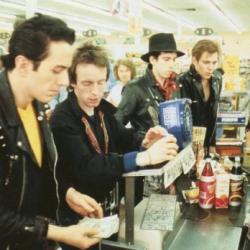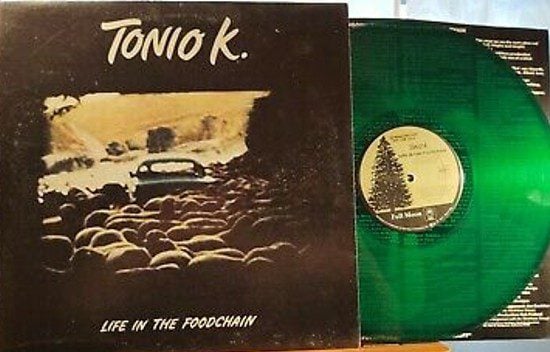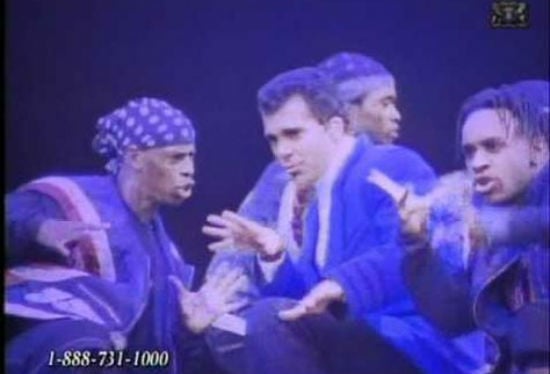Here’s the Civil Wars, Joy Williams and John Paul White, performing “Barton Hollow“:
In case you needed any further reason to love the Civil Wars, Bread for the World notes that the duo also provided the score for Finding North, a documentary about hunger in America. Here’s Williams on the subject:
Forty-four million people go to bed hungry in America and don’t know where their next meal is coming from, and so [Finding North] highlights food insecurity in the United States, which basically means food deserts where people literally don’t have access to fresh fruits and vegetables. [The film] definitely puts a face to what I would consider an epidemic in the United States.
You can watch the trailer here for the documentary by Kristi Jacobson and Lori Silverbush.
In related news, Todd Snider’s new album, Agnostic Hymns & Stoner Fables, comes out today. The AV Club’s Steven Hyden says it’s full of more of Snider’s “funny, sorrowful, wonderfully vivid depictions of people living at or below the poverty line”:
Snider’s characters don’t bother trying to transcend their circumstances; they’re just trying to figure out a way to survive them. Taken together, the miscreants and losers scraping by in Snider’s universe tell one long story about the American underclass. It’s like a folk-singer redux of The Wire, only with characters too hapless to pull off any kind of criminal conspiracy.
Certainly the pivotal line from Agnostic Hymns — “It ain’t the despair that gets you, it’s the hope,” from the song “Big Finish” — sounds like something The Wire creator David Simon could’ve written. The anger Snider mostly keeps at bay on his earlier albums curdles here, a feeling reflected in the torn-and-frayed sound of the music, which Snider recorded at home with friends in East Nashville, usually off-the-cuff and before his band learned the songs.
“Curdles,” there, isn’t meant to be a bad thing. As Snider says, “It’s a folksinger’s job to be honest about stuff and then not be a dick when people boo.”
Also out today: Bruce Springsteen’s 17th album, Wrecking Ball. At Pop Matters, Steve Leftridge says:
Wrecking Ball is, without question, about … hard times, just as Darkness on the Edge of Town was about Carter-era hard times and Nebraska was about Reagan-era hard times. If Wrecking Ball is “angrier” than either of those albums, as has been much reported, it’s in the new record’s relative overtness in its handling of its subjects. … While most of Springsteen’s songs about class and society strike glancing blows at the destructive forces in charge (“foreman says these jobs are going, boys, and they ain’t coming back”; “come back home to the refinery/hiring man said, ‘son, if it was up to me…’”), the characters in “Wrecking Ball” are less elusive about whom to blame for their troubles, cutting out the middle figures like foremen and hiring men and taking on the real culprits unambiguously.
… Wrecking Ball is Bruce’s most, well, Jesus-y album to date. Most obviously, the record is threaded together with gospel-music archetypes, from wailing preachers to testifying choirs, bringing to mind the throttled, sweatball preacher shtick that Bruce ran into the ground on two straight tours during his aughties comeback. But lyrically, Springsteen turns continually to biblical themes. In “Jack of All Trades”, the speaker hopes that “we’ll start caring for each other like Jesus said that we might”; in “”Rocky Ground”, we’re reminded that “Jesus said the money changers in this temple will not stand”; “We Are Alive” invokes “a cross up on Calvary Hill”; bonus track “Swallowed Up (In the Belly of a Whale)”, beyond the obvious allusion in the title, calls on “God’s Mercy” as a matter of birthright.
This is all part of the narrative structure of a cohesively designed album, sequenced to rail against economic injustice by way of catchy, rattling folk-blues numbers on the first half of the record and to rise with spiritual redemption in the second half by way of train-a-comin’ rafter-raising. The first five songs are all at turns hopeless and furious. Sixth track “This Depression” starts to change focus, blending worry over financial plight with the need for a healing love. “Wrecking Ball” turns the corner, a song of endurance — “hold on to your anger”, Springsteen sings, but “don’t fall to your fear,” a theme that carries through the gospel-influenced one-two punch of “Rocky Ground” and “Land of Hope and Dreams,” spirituals that promise new-day salvation for all lost but faithful souls.












